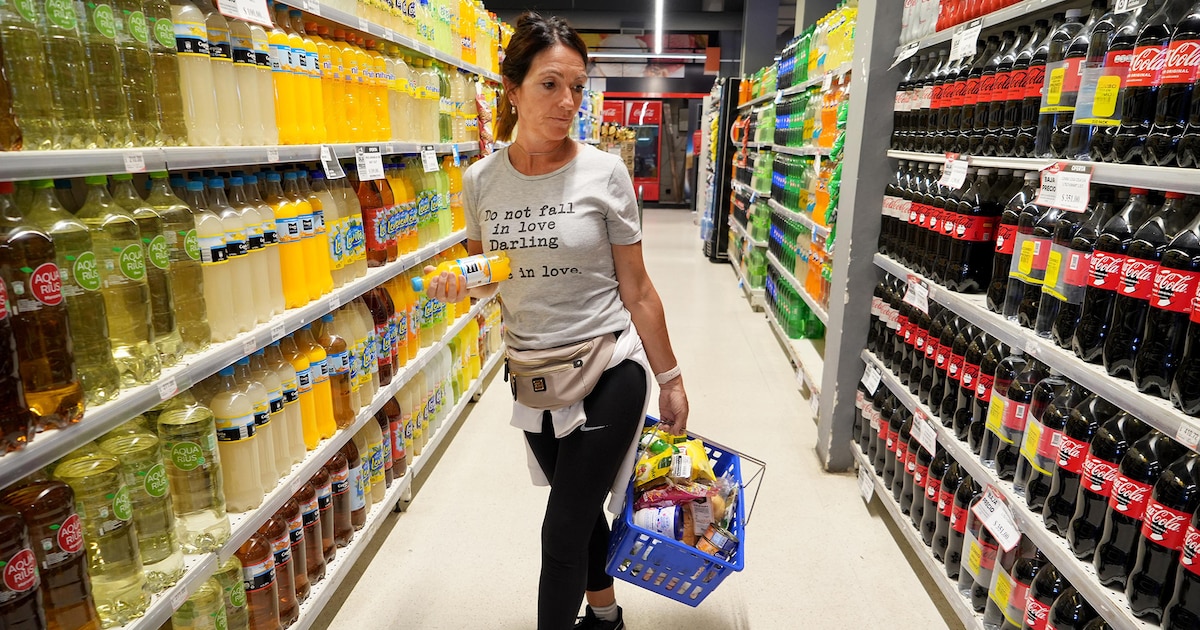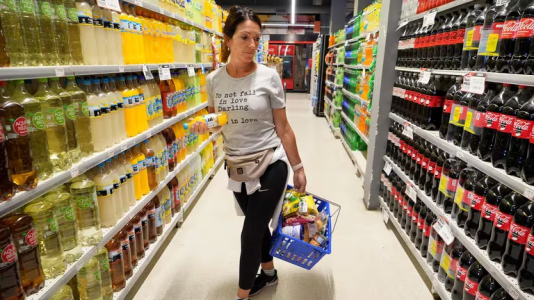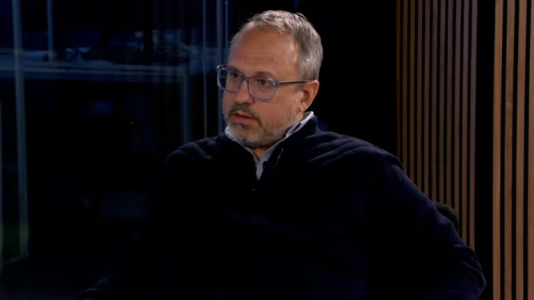All the Answers
Well-known member
More taxes: new municipal taxes affect companies and put pressure on prices - Infobae

Source:

Más impuestos: nuevas tasas municipales afectan a las empresas y presionan sobre los precios
La crisis de ingresos que afrontan las distintas jurisdicciones hizo que comiencen a proliferar nuevos gravámenes y que se aumenten los que ya existen. Cuáles son y qué impacto tendrán sobre los consumidores.
April 25, 2024
The income crisis faced by the different jurisdictions caused new taxes to begin to proliferate and those that already exist to increase. What are they and what impact will they have on consumers.
By Natalia Donato

The new taxes created by several municipalities to collect more are worrying in the supermarket
One of the messages that President Javier Milei made very clear from the campaign is that, when possible, he will move forward with lower taxes to make companies more competitive and create favorable conditions for investing. However, in the meantime the opposite is happening at all jurisdictional levels.
The adjustment in spending, which translates not only into lower discretionary transfers but also into lower co-shareable resources due to a drop in activity, is prompting provinces and municipalities to increase taxes and fees or create new ones to cover their spending levels. So much so that the business sector warned that many of the new positions do not have compensation and that they use, among other arguments, the legitimation that the defense of the environment has to justify them.
“What is happening is obvious and is what always happens in Argentina when there is a reduction in non-automatic transfers from the Nation to the provinces and municipalities or when co-participation falls. With the drop in collection that is taking place, co-participation fell 19% this year in the first quarter. That is very significant and has an important impact on the important provinces and municipalities,” explained the economist and head of the Argentine Institute of Fiscal Analysis (IARAF), Nadin Argañaraz. And he added that in Argentina, when that happens, “whatever taxes billing or consumption always ends up increasing. It is a way of acting indirectly.”
"With the drop in collection that is taking place, the co-participation fell 19% this year in the first quarter. That is very significant and has a significant impact on the important provinces and municipalities” (Nadin Argañaraz)
Argañaraz gave the example of the road tax, recently applied by the vast majority of Buenos Aires municipalities. “If you charge the municipal tax of 1.5% on fuel consumption, it is difficult for people to know. It is not seen,” said the economist. And just as it happened with this rate, in recent months the mayors of the different localities have created others and have increased the existing ones to overcome the drop in income. That is why tax experts predict for 2024 an increase in tax pressure at the provincial and municipal level and a transfer to prices.
“They are rates that are generally applied to companies and the businessman always transfers them to the prices. They are extremely regressive,” said Argañaraz, adding that until last year there were 84 different municipal rates in the country.
This increase in tax pressure is generating strong concern in the private sector, which seeks to make representations to each jurisdiction to minimize the impacts. Large businesses, such as supermarkets, for example, were recently ordered to pay new charges in several locations, and in many cases the excuse is environmental protection. Businessmen call them “Ecotasas”. As an example:
-In Pilar , the Environmental Protection Rate was created that applies to supermarkets, shopping malls, hotels and industries and must be paid by the taxpayer for each invoice issued. In the case of supermarkets, two modules are applied for a total of $38, which is charged as an increased cost on each sales ticket to all consumers, including final consumers.
-In Hurlingham , they created the Municipal Assistance Fund for cafeterias and picnic areas for hypermarkets and wholesalers. The contribution must be 1% of the turnover. “3.5% of the Safety and Hygiene Tax is already paid, one of the highest in the country, and this would raise the billing rate to 4.5%,” questioned a source from one of the chains. If the business makes donations, it is deducted from what it has to pay.

The mayor of Tres de Febrero, Diego Valenzuela, will present on May 3 a study "Less taxes, more work" with a comparative map of rates in the Buenos Aires municipalities.
-In Almirante Brown , for its part, a rate similar to that in Tigre was applied, which taxes the sale of aerosols, cans, multi-layer containers, diapers and Pet. It is called the Fee for the marketing of non-returnable containers and the proceeds will go to the Environmental Management Strengthening Fund. According to what was revealed when it was approved by the Deliberative Council of that city, $9 will be taxed for each bottle regardless of the size; for each can or aerosol $3.84; and for each disposable diaper, $1.68.
-The Municipality of Neuquén also created a rate called “Various waste”, which represents 10% of the liquidated TSH. And in Lanús, the Emergency Tax Assistance Program was established , which applies to banks, financial entities and supermarkets that have invoiced more than $326.4 million in 2023. They should increase TSH by 30 percent, they said in the supermarket. In the municipality of Córdoba, meanwhile, they advanced with the Social Inclusion Solidarity Fund, which represents an additional 10% to the TSH and 25 percent to large taxpayers.
The list continues. The case of the municipality of Azul was also known , which at the end of last year created a tax for essential services. It reaches each hectare of land with the equivalent of a fraction or a liter of diesel (depending on the type of field). According to the estimates made, it implies the equivalent of almost 490,000 total liters per month, said tax official César Litvin, who recalled that the measure has already been judicialized.
In Almirante Brown, for its part, a rate similar to that in Tigre was applied, which taxes the sale of aerosols, cans, multi-layer containers, diapers and Pet. It is called the Fee for the marketing of non-returnable containers.
“The two rates that must exist are the one that taxes activity and assets. Anything else is an invention. Creating new rates is a scheme to cover up the decision not to lower public spending,” the mayor of Tres de Febrero , Diego Valenzuela , told Infobae, who made headlines days ago for announcing that he would not apply the road tax (which applies to fuel). ) in which the majority of his Buenos Aires colleagues had advanced.
As he explained, every year he reviews the tax ordinance to “remove the fat,” and “that is based on an idea of the direction of the country and local governments that points out that less taxes equal more work.” “I have been testing it and it works. To the extent that there are not many taxes, that increases the tax base; “It is an invitation to work,” said the mayor, a career economist.
He added that "if in the current recessionary context the response of the municipalities is to raise taxes, it is a strategic error and the recession deepens." “We have a lot of taxes. I see that my fellow mayors who have a surplus, raised the road tax, and they do it in solidarity with others. That, in economics, is collusion,” the Mayor emphasized. Along these lines, Valenzuela took the opportunity to anticipate that on May 3 he will present “Less taxes, more work”, a study carried out with experts and the Labor Foundation that includes a comparative map of rates between all Buenos Aires local governments.
“The ingenuity to raise and spend has no limits. The rulers do not accept the reality that political costs must be paid to make the changes that this country needs. They stretch their imagination to see where they get resources from and the only place is the private sector that does not give more” (Mario Grinman)
In the Argentine Chamber of Commerce (CAC) they presented a report weeks ago that shows the evolution of TSH in 30 municipalities in the country between 2010 and 2023 (carried out by the IARAF). It shows a significant increase in the tax burden exercised by the municipalities through this rate, with an average increase of around 19.3% for municipalities that tax the tax through a rate, and 125% for those municipalities that tax through a fixed amount.
“The ingenuity to raise and spend has no limits. The rulers do not accept the reality that political costs must be paid to make the changes that this country needs. They stretch their imagination to see where they get resources from and the only place is the private sector that does not give more,” said Mario Grinman , president of the CAC, during the presentation of the report.
In turn, Daniel Calzetta , president of the entity's Tax Affairs Commission, highlighted that “municipal taxation is growing and increasingly takes the form of hidden taxes rather than true rates. The House's position is that taxation has to be reduced. The adjustment of the municipalities does not have to be done based on increasing rates and creating taxes that only complicate economic activity and commerce.”
For his part, Litvin highlighted that “a rebellion is brewing,” since “the municipalities and the province of Buenos Aires are not making any effort to lower spending.” “They are raising rates again and there is no compensation. In addition, they are generating an effect on prices. That is inflationary. It does not collaborate with the fight against inflation,” the tax official emphasized in dialogue with this medium.


